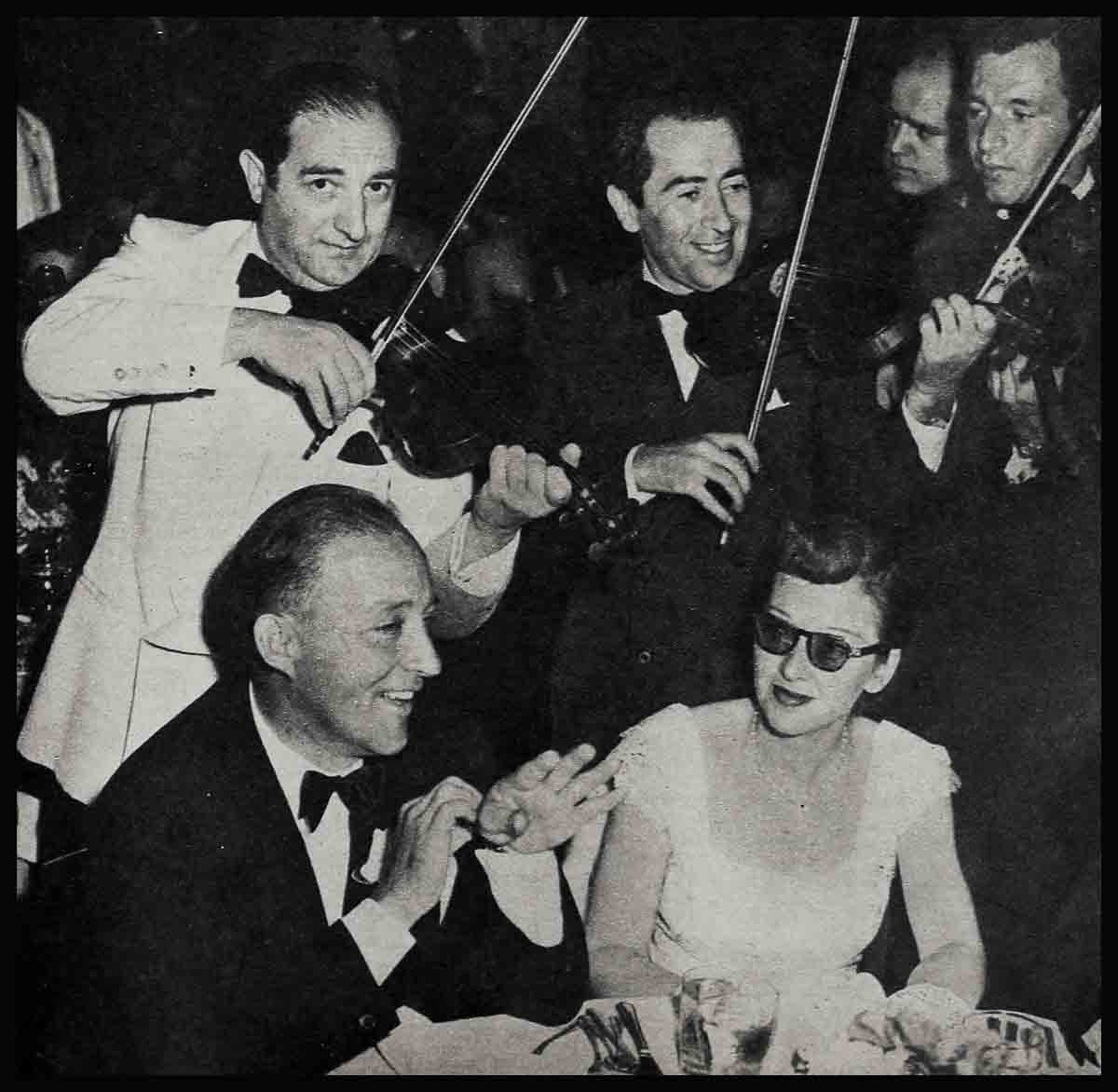
Dixie Lee And Bing Crosby: Their Tragic Love
One day a few weeks ago a man walked down an upstairs corridor of St. John’s Hospital in Santa Monica, California. He had walked it before and knew it well. It was sterile and shiny and very modern. The walls and the floor curved into each other gently so that there’d be no place for dust to collect and the linoleum the man walked on was hard and shiny and made resounding noises as his feet paced his progress. Wide brown doors opened en either side of the hall and they seemed endless. Nurses and nuns passed briskly and nodded politely and some of them smiled.
This man walking down this corridor was probably the most famous man in the world today; better known than kings and better loved than statesmen and great benefactors. And his troubles, if he could have shared them that day, would have gladly been accepted by millions of people who had grown to know him and love him as Bing Crosby, a crooner, a singer of ballads, a flip man with a joke and a handy man with a golf club. Beyond these things he had never been very accomplished, but he had somehow achieved the position of a revered human. Maybe it was because of his family life.
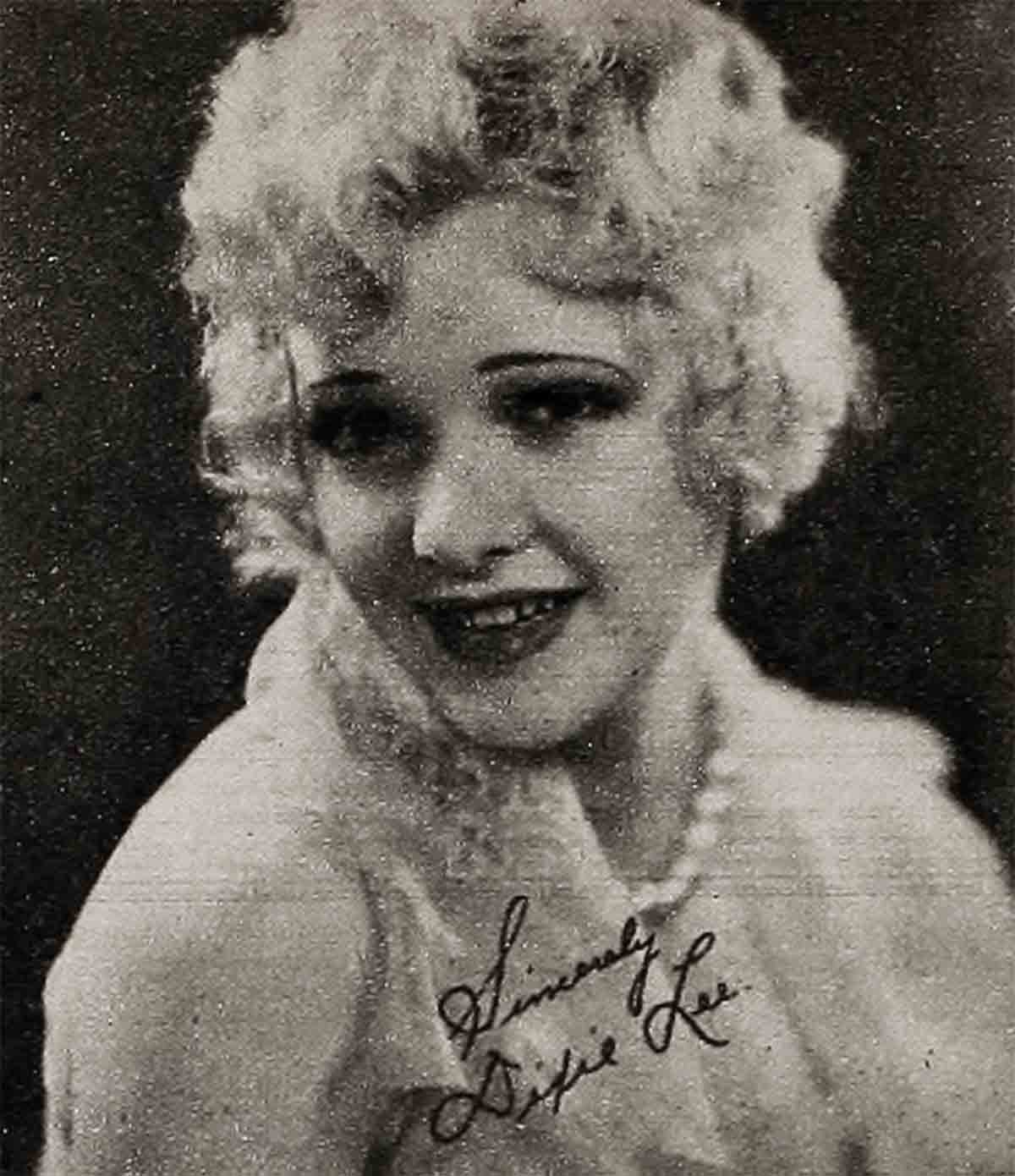
When he reached the rear of the hall, Bing Crosby pushed open one of the brown doors and entered a corner room. A woman lay in the bed, quietly resting in the filtered light from drawn venetian blinds. There were a lot of flowers in the room but little else. Bing walked to the bed and stood looking down at her for a moment, then he touched her hand and they smiled. The woman was pale and thin. She was Dixie Crosby, Bing’s wife. She’d been ill a long time.
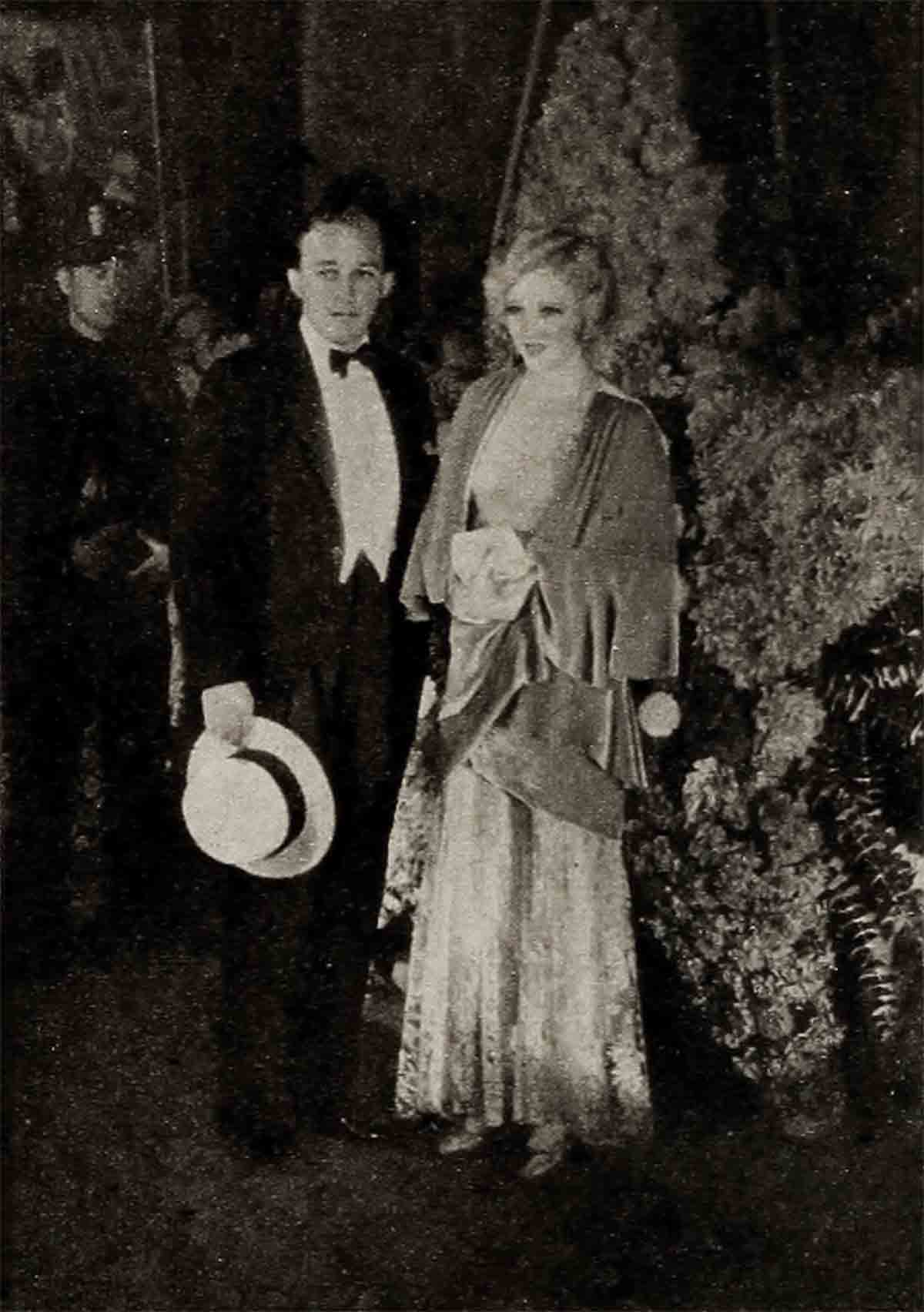
Although the world thought it knew a lot about Bing and Dixie Crosby, it really didn’t. For instance, right at that moment it didn’t know that Dixie Crosby was terribly ill, and that this day was, in a sense, a day of atonement, a day of remorse, a time of accounting. It didn’t know that here, in this hospital room, its idol, was a shaken man, deep in sorrow.and pitiful in.the wish that his last twenty years had been different.
They stood alone in the regret they shared and they asked no sympathy, for they both knew that this might be the end of their time together. Life never goes on forever, and a grave illness makes people think that way .
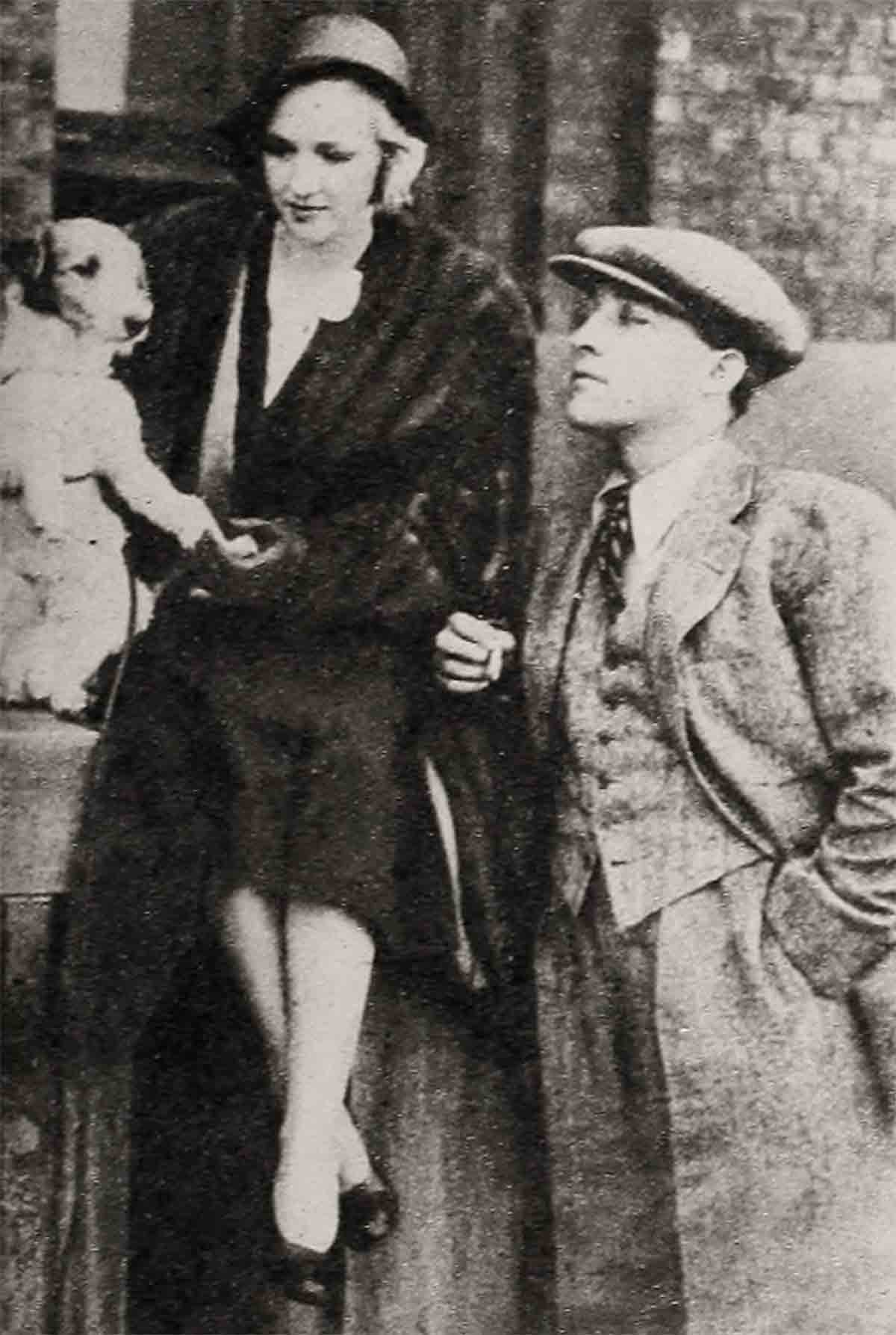
Twenty years ago Bing was an unknown troubador and Dixie a rising young movie star. He was penniless and underpaid, and she was making a lot of money and seemed headed for the heights in motion pictures. Bing Crosby, if you knew him in those days, was pretty much a character. Each night he reported for work at the Cocoanut Grove, a night club in the Ambassador Hotel in Los Angeles and, as part of a trio known as the rhythm boys, banged through a dozen or so songs very much in the manner of a group of male Andrews Sisters. And.at the end of each show, Bing, a gregarious lad, sauntered from the stage and sat at the tables with the customers and laughed and chatted and sipped until it was time to go home.
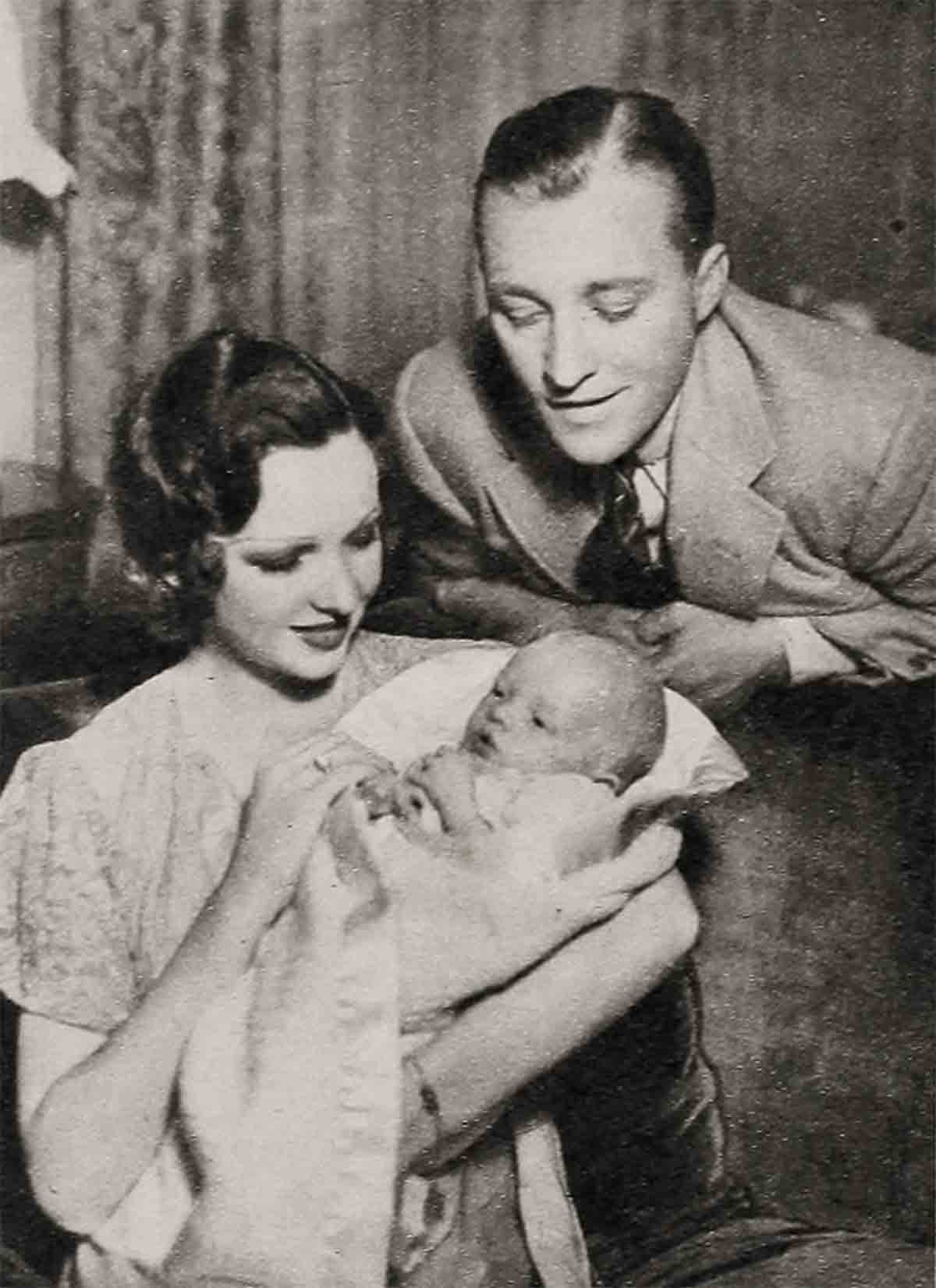
Although he wasn’t ever a handsome fellow, Bing was always likeable. And when it was time for him to sing his solo numbers, he leaned back on the piano and closed his eyes and, with all the casual abandon of a kid humming himself to sleep, proceeded to awaken an urge to possess him in all the women in the room. When a local radio station began carrying the program, it soon became evident that better than half the radio sets in Los Angeles were tuned to the station listening to Bing sing. He was the number one romantic rave of the town.
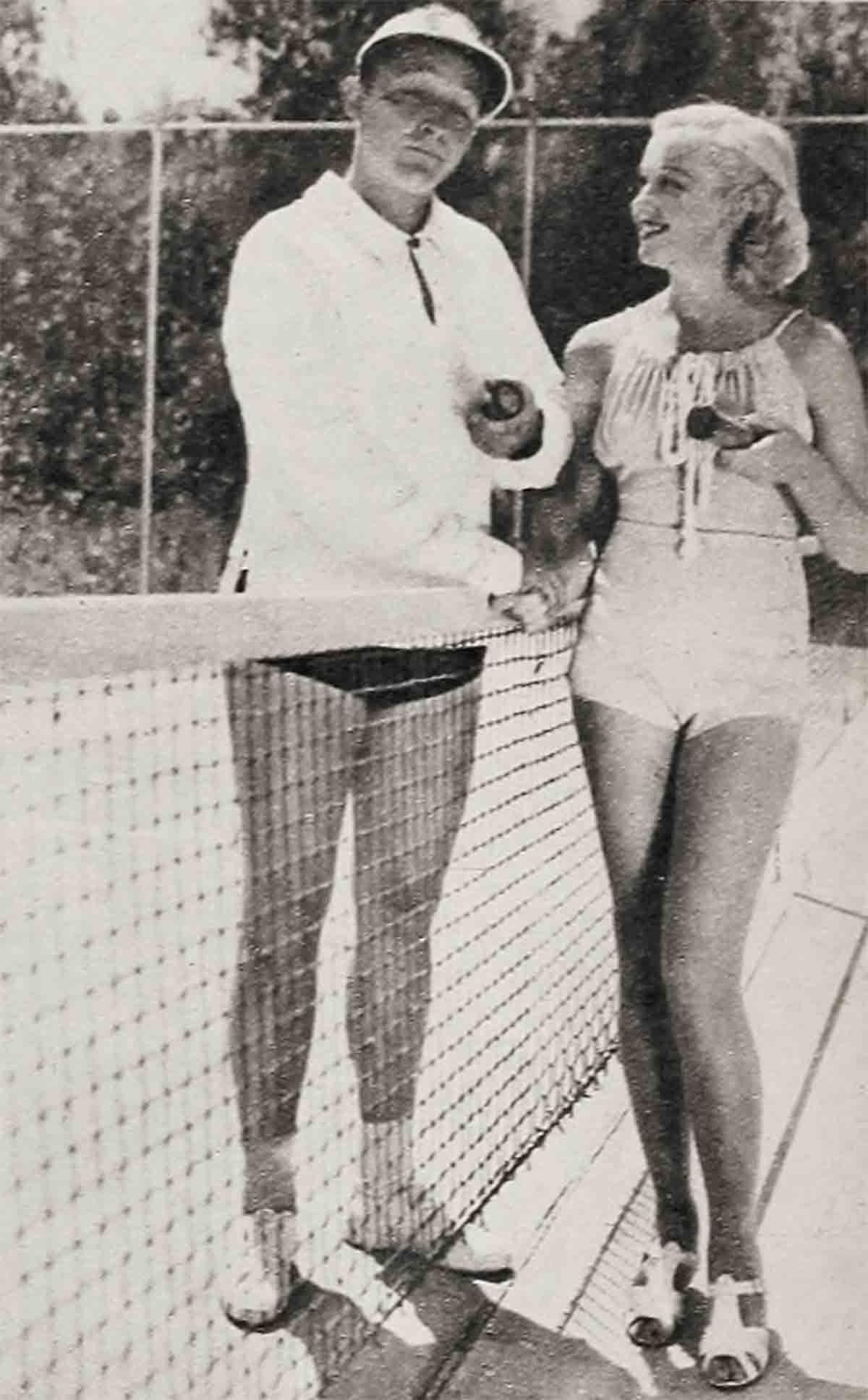
The first meeting between Bing, and Dixie took place at a party held after the Cocoanut Grove closed. She was across the room talking to a group of friends and Bing couldn’t take his eyes from her. She was a lovely thing, bright as a new dime and filled with a gay humor that made her universally liked. Bing waited for Dixie to come over, as most women did in those days. But she didn’t. She ignored him—although later events proved she was just as fascinated as the rest of the women—and pretended to be vitally interested in her own friends. After a while Bing walked over toward her and waited politely until someone introduced them.
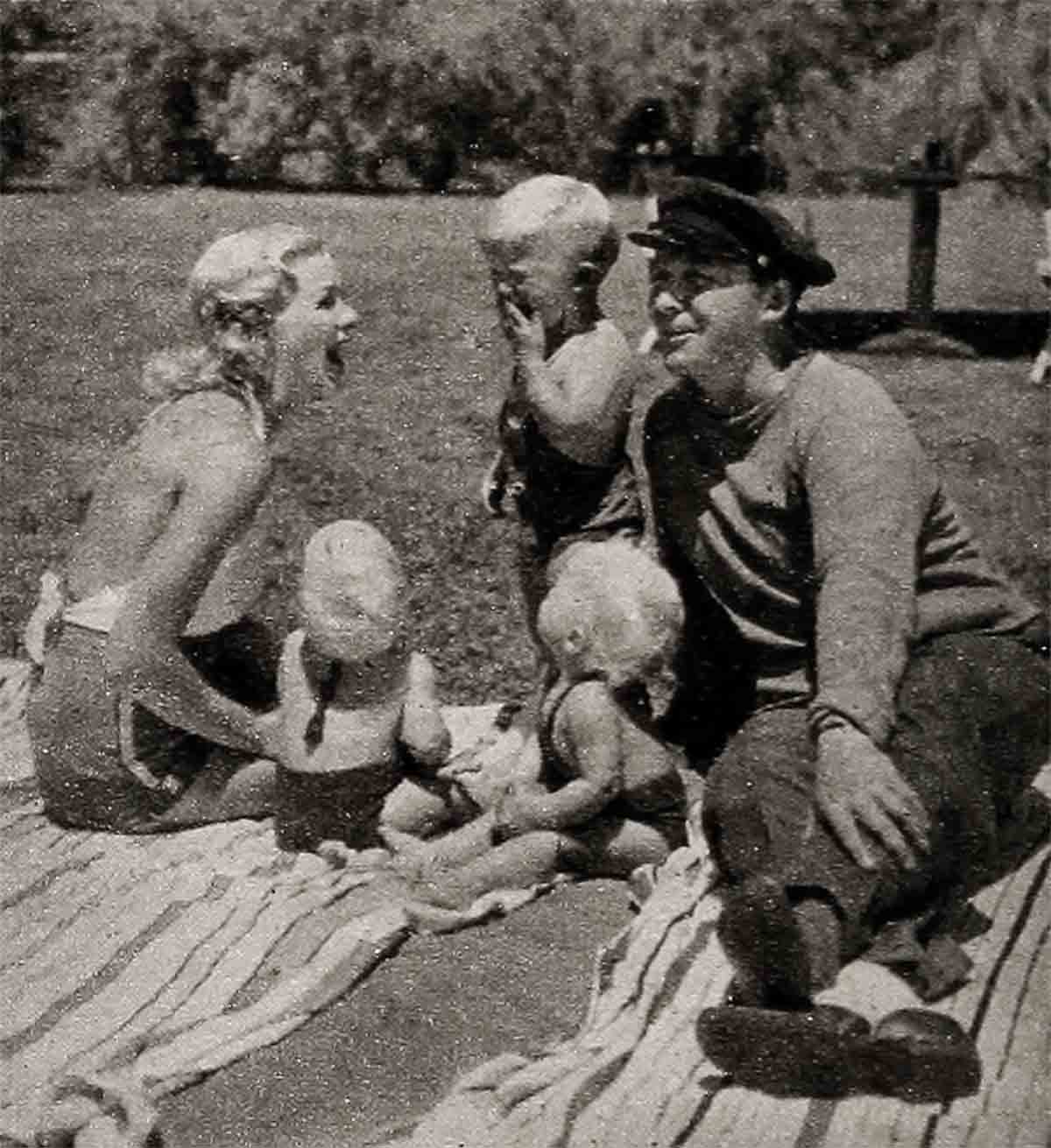
Now, despite Bing Crosby’s obvious ability to handle all situations, he is by nature a very shy man. And, like most shy men in public life, he has a tendency to be brash when he is most embarrassed. It was that way when he first met Dixie. Casually, he shook hands and made a simple remark or two about how much he enjoyed her work. Dixie accepted the compliments, coolly. And in a few minutes Bing found it necessary to leave her, so he slipped closer and whispered confidentially in her ear.
“Look,” he said, “you seem like a very nice girl. Let’s get together sometime. Call me, huh?”
Dixie froze him with a glance. “As long as I live,” she said, “I’ll never call you.” And she walked away.
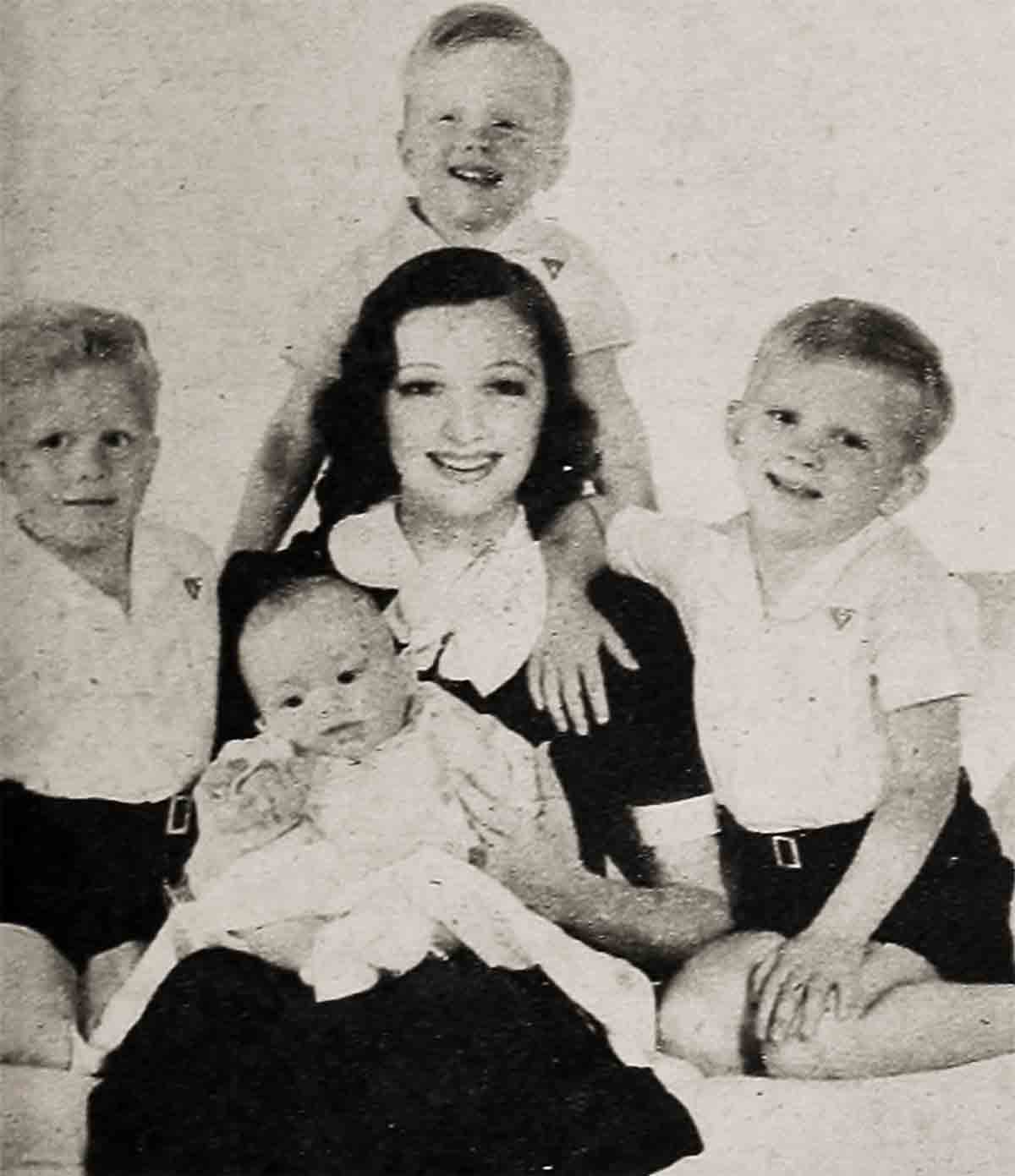
The Crosbys have been married more than twenty years now and to this day Dixie has never called Bing for any reason. It is part of the agreement she made with herself that night.
The courtship of Bing and Dixie Crosby was a rather erratic one. Bing was a young hellion at the time and generous to himself with illicit gin. He was a powerful man, able to tear a phone book in two with his hands and capable of staying on his feet around the clock, and of still doing his show, anytime a party seemed to warrant it. Dixie, on the other hand, was gentle, careful of her career and health and just about as far from being a party girl as you can get. What attracted them to each other is as hard to say as it is with most people. But Bing, from the first meeting, was fascinated and unable to hide it or fight it.
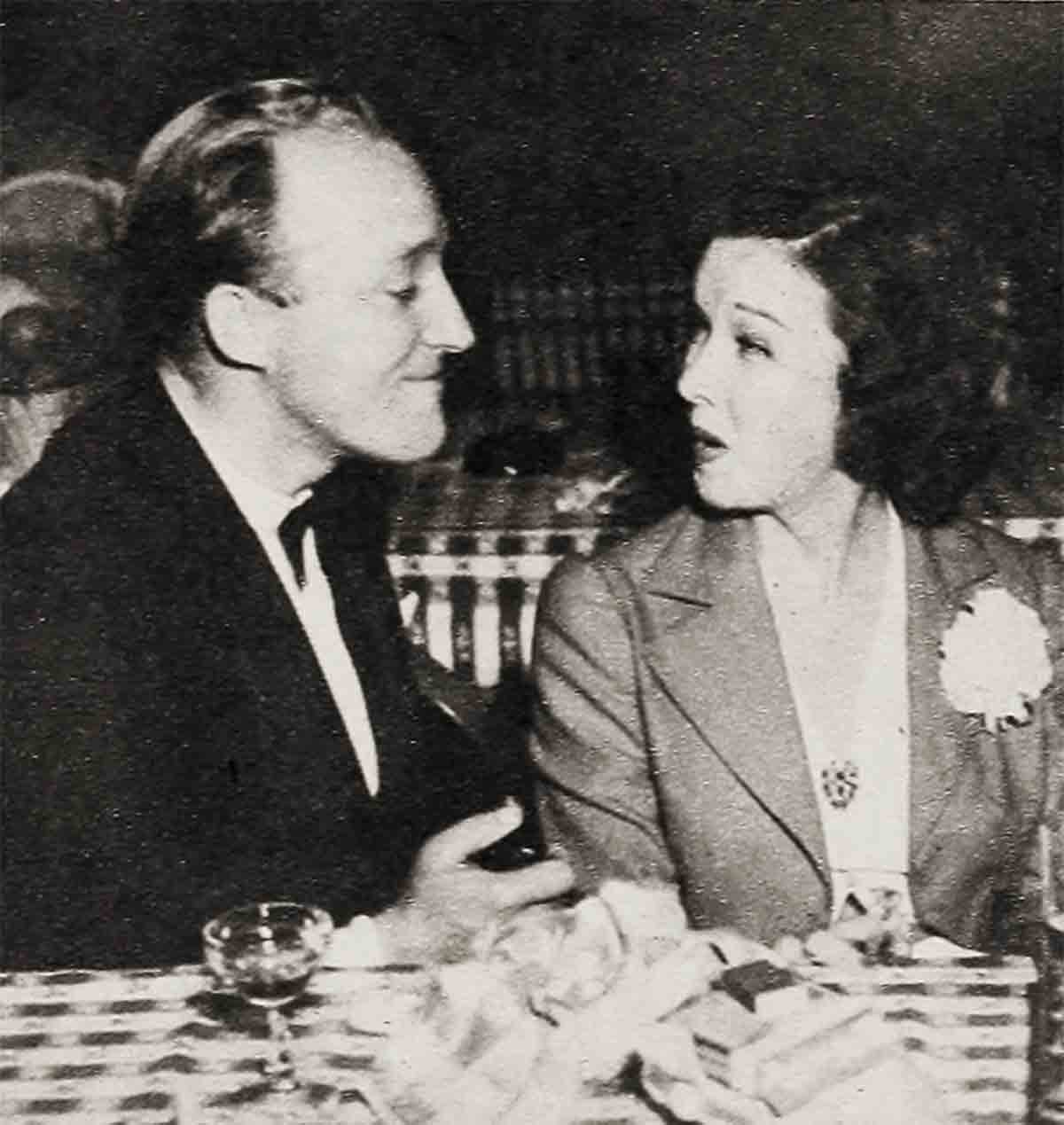
As they grew to like being together more, Dixie changed her entire attitude and started a one-woman campaign to straighten the young singer out. She’d break his gin bottles and cart him off to a Turkish bath every time she thought it wise. She laid down pretty strict rules of deportment, and was a stern disciplinarian whenever Bing broke them. And when they were married, she accepted the responsibilities of being Bing’s wife completely. She suffered the disappointments he did and tried to make him like his life better than he had as a single man. She held back nothing of herself to make Bing the husband that she had always wanted to meet and marry.
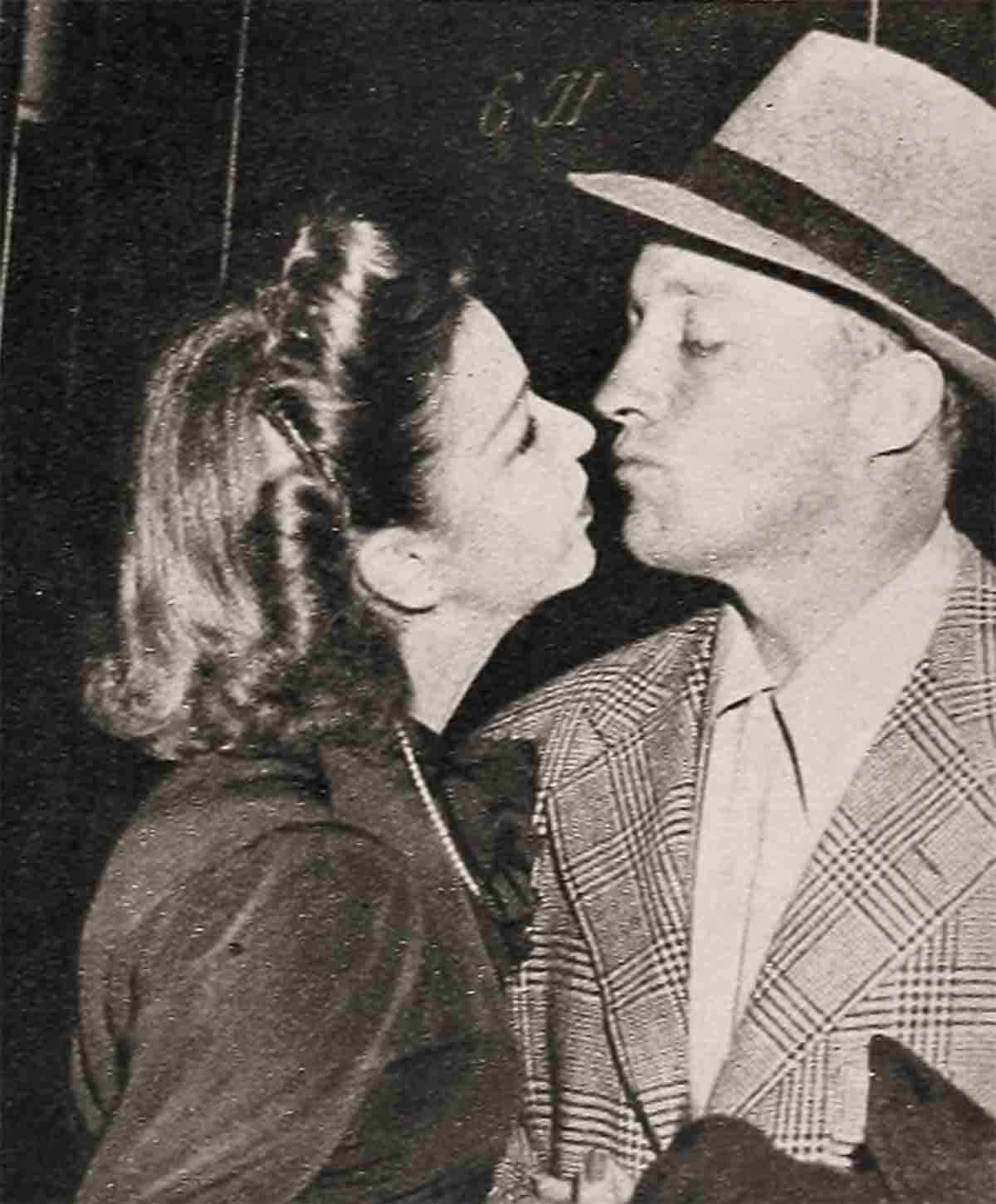
The first separation came possibly a year after they were married. It was due, their friends say, to Bing’s adolescent attitude toward his responsibilities. Bing seemed to want to go on with his partying and playing, considering his contribution to life to be his nightly appearance at the Cocoanut Grove. The papers were pretty aware of Bing in those days, even though he was not at all famous nationally. And they were very aware of Dixie. She was riding on the wave of the new sound that had come to the movies, and was considered the biggest song and dance actress of the day. So, when it was suddenly announced she had gone to Ensenada, Mexico, possibly to get a divorce, the news made the front pages.
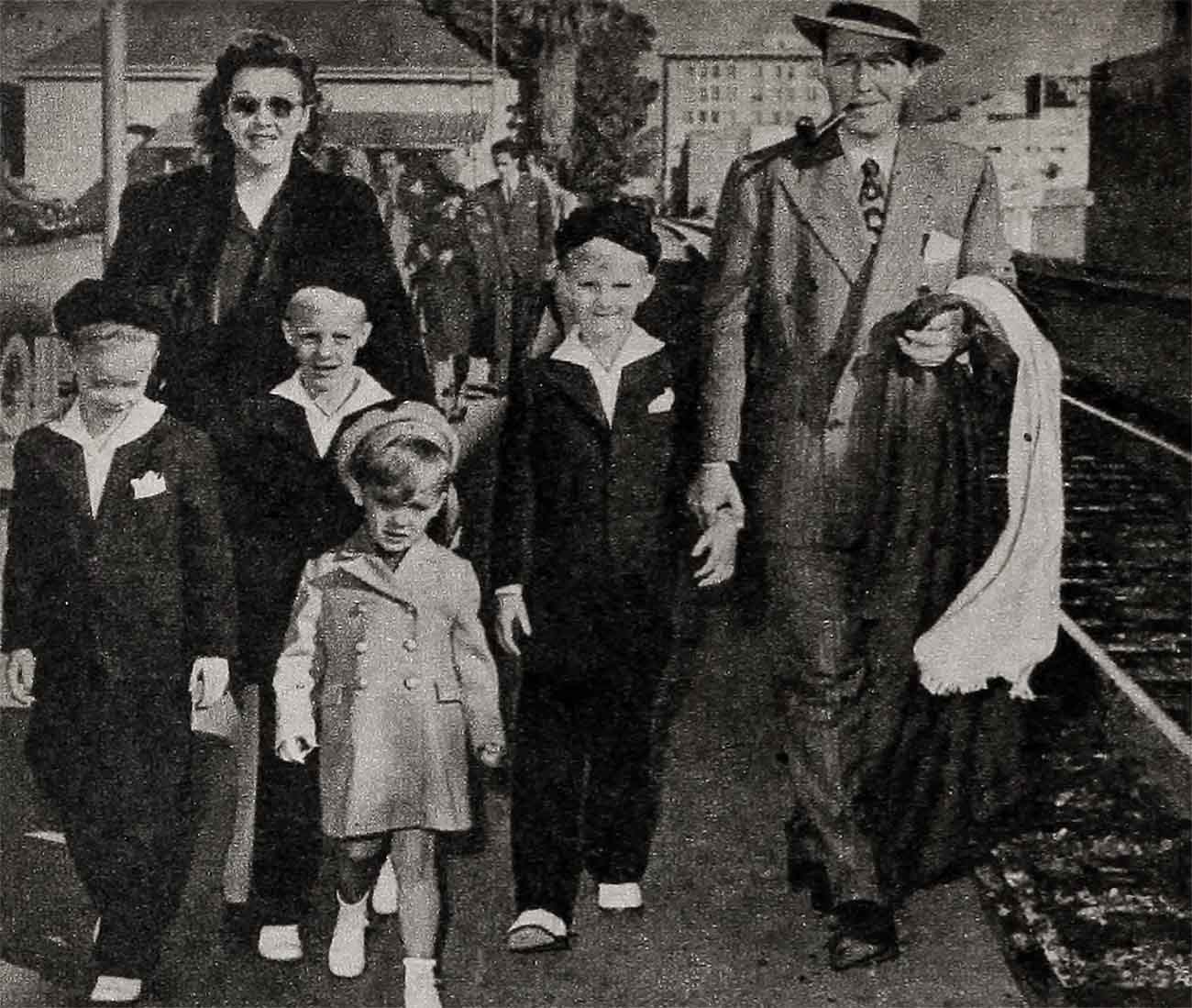
Something snapped in Bing Crosby when he read those headlines. He has never admitted his true feelings at that time to anyone, but his actions verify the fact that he was hard hit. He went to Mexico to plead with Dixie to return to him, and he must have done some pretty fancy promising and confessing to himself, for he came back a happy and a changed man. He quit partying, started to take an interest in his career, and started the family that now numbers Dixie and his four sons.
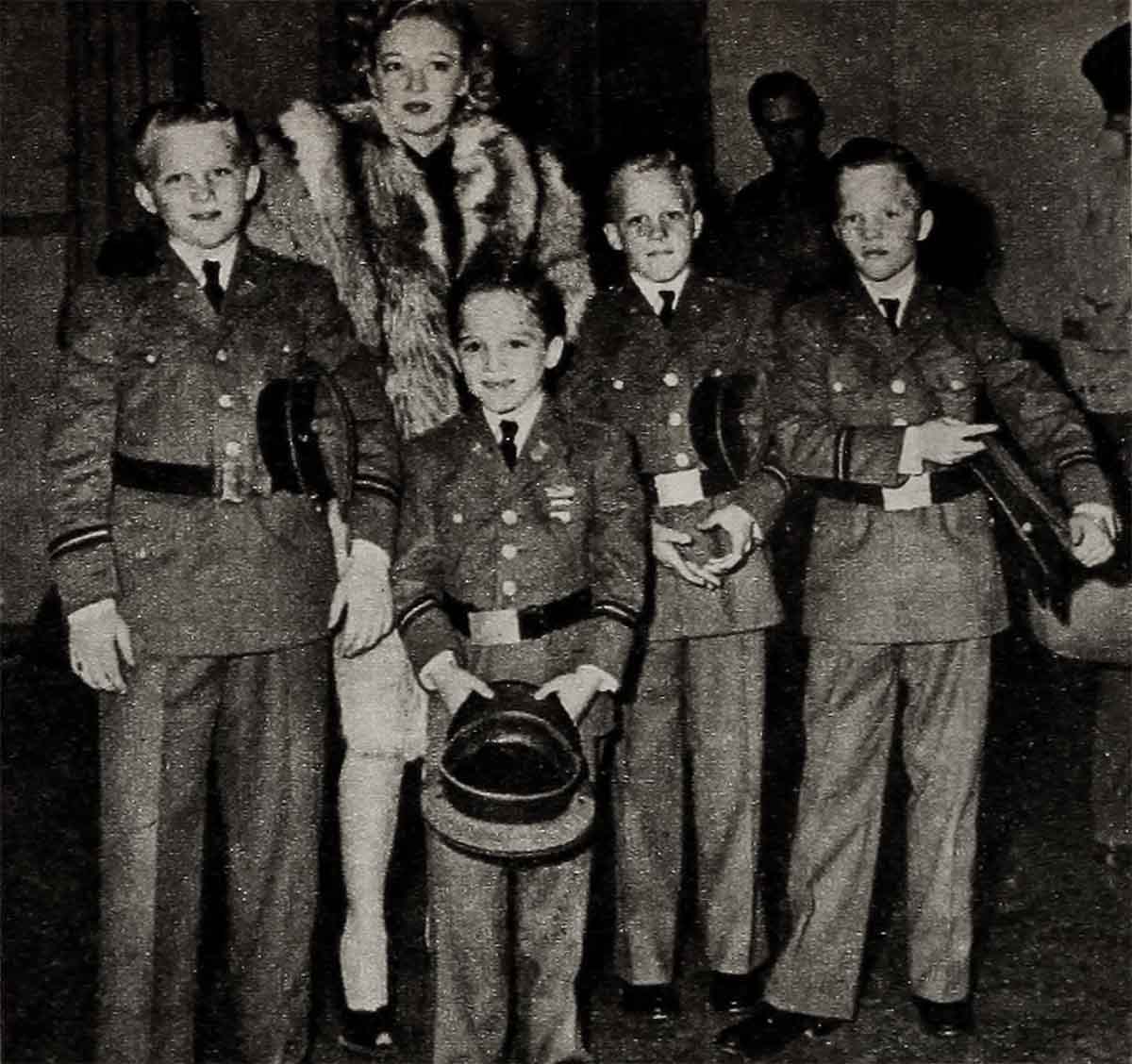
Dixie Crosby has always been Bing’s four-leaf clover. If she hadn’t come into his life, he might have lived it as a baritone in a trio, or, like the other boys in the group, in some other line of work. With ambition itching him, he quit the Grove and his partners and, with his brother, Everett, went to New York to try to get himself set in the radio business. And in a surprisingly short time, sponsored by the Cremo cigar manufacturers, he was the rave of the nation as the first and best of the crooners.
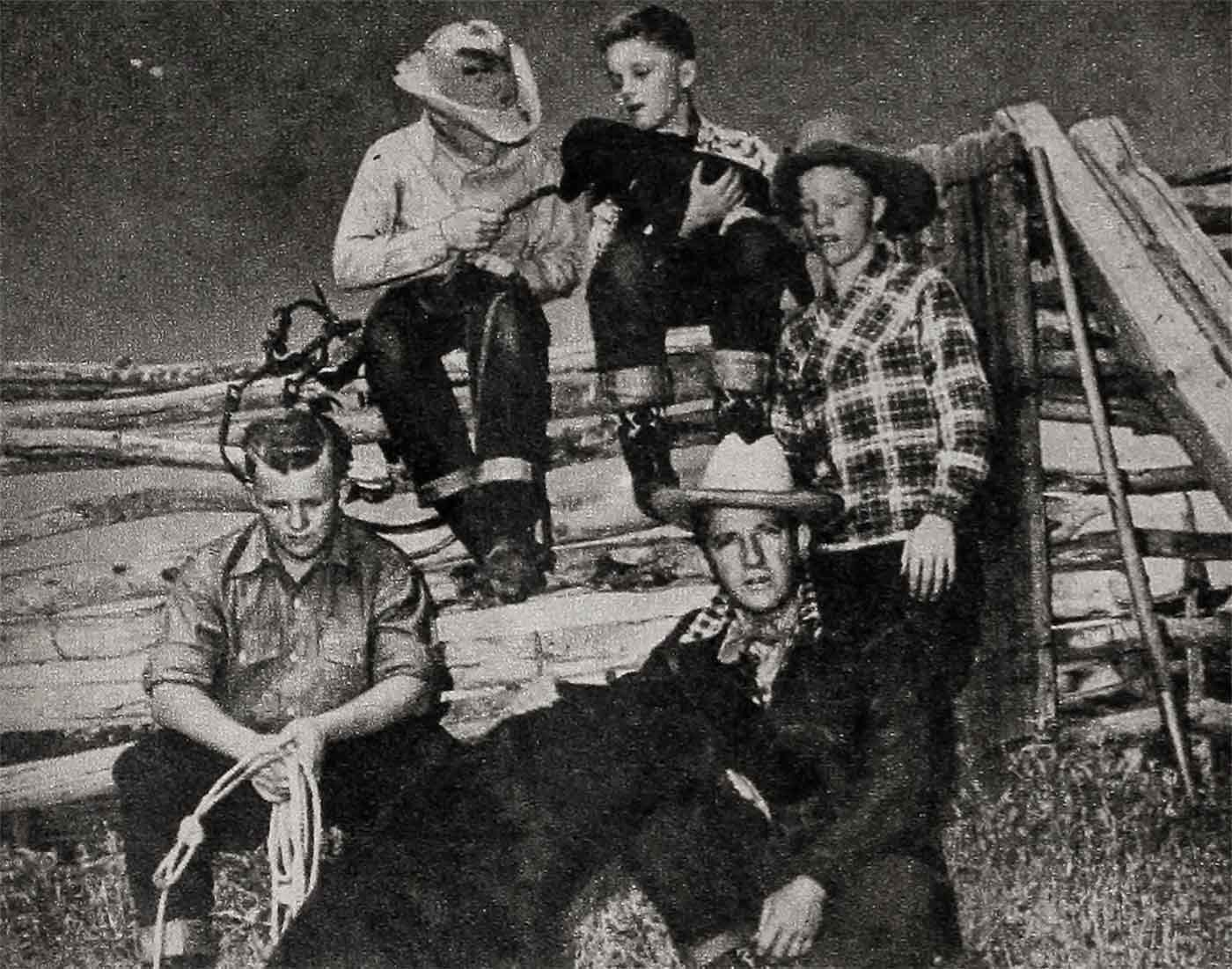
What has happened to Bing Crosby professionally since that time has been told again and again, but for some odd reason his private life became a great secret. Dixie Crosby quit the movies to start her family and, with a couple of minor exceptions for fun, has never worked since. The gay, exciting young girl crept behind the wall that Bing built for her and seldom came out. The boys were born, one by one, and even then Dixie stayed where she belonged—in the background of Bing Crosby’s glory.
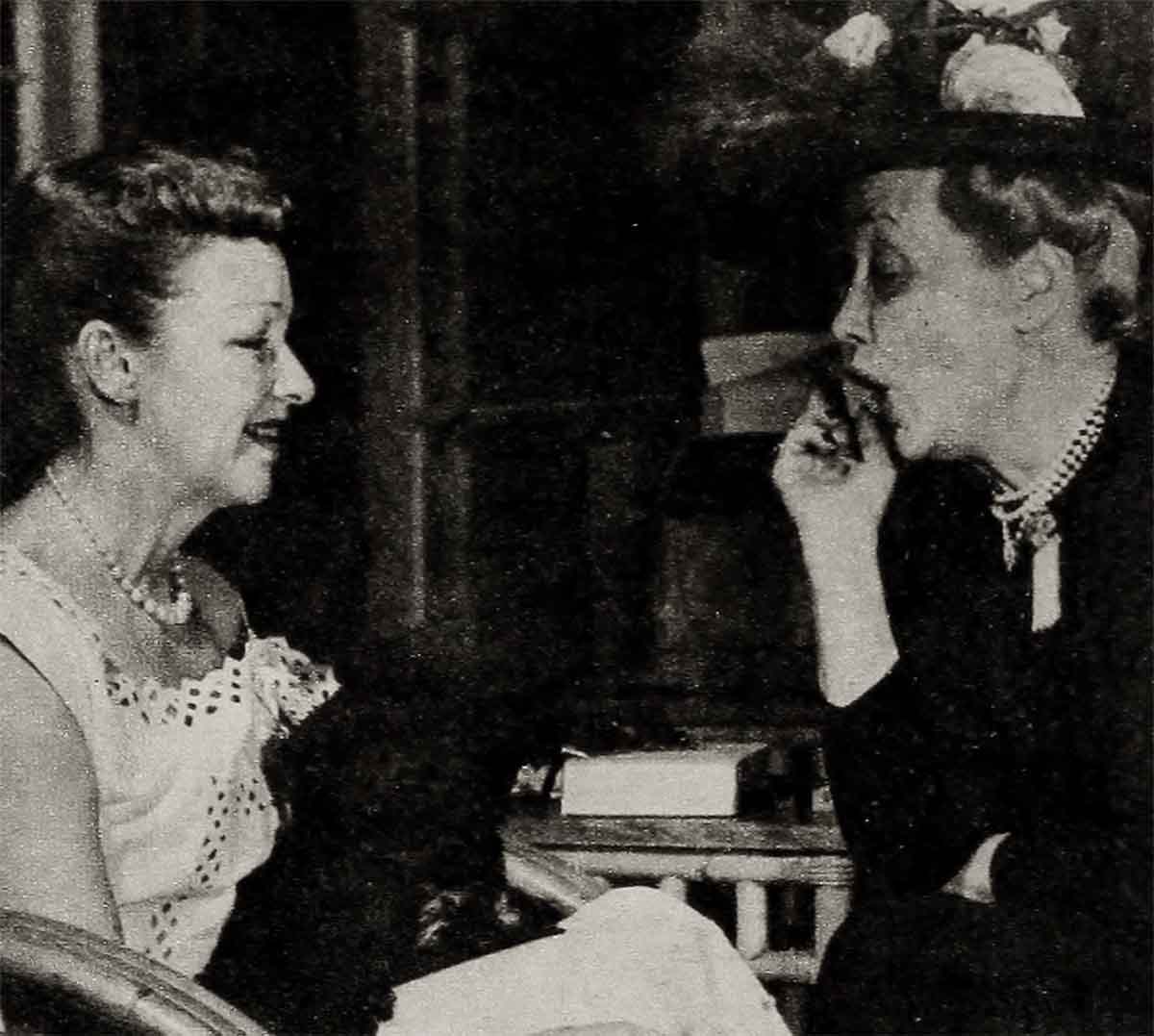
It must have been ten years before a serious difference plagued the Crosbys again. All of the boys had been born and were being carefully groomed for manhood. Both Dixie and Bing made each phase of their young lives important. Education, spiritual conditions and an acceptance of responsibilities were the things they concentrated on most, and the world agrees that no sons have been better or more lovingly prepared to face adulthood. But while this was taking place, something was happening to Bing and Dixie Crosby.
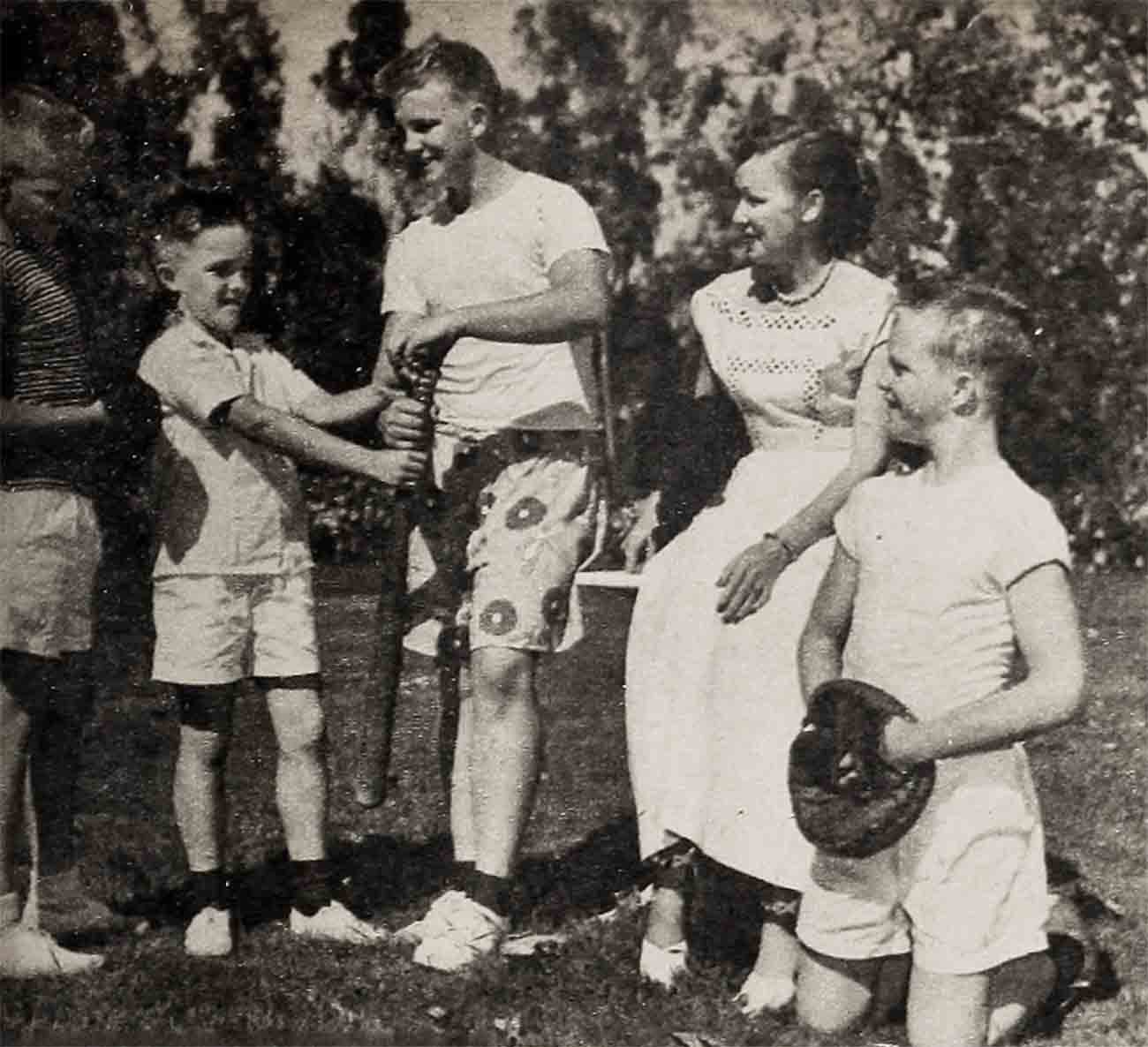
Bob Crosby Bing’s brother, once might have hit it on the head. It was at the time, in 1950, when Bing went to Europe alone and the gossip columnists were hinting darkly that Dixie was furious and would do something about it. “Bing,” Bob said, “has made Dixie a golf widow. When he isn’t working, he’s off somewhere playing golf and she has to be alone.” Bob backed this statement up with another that he, himself, was going to give up the game because he didn’t want the same thing to happen to his family.
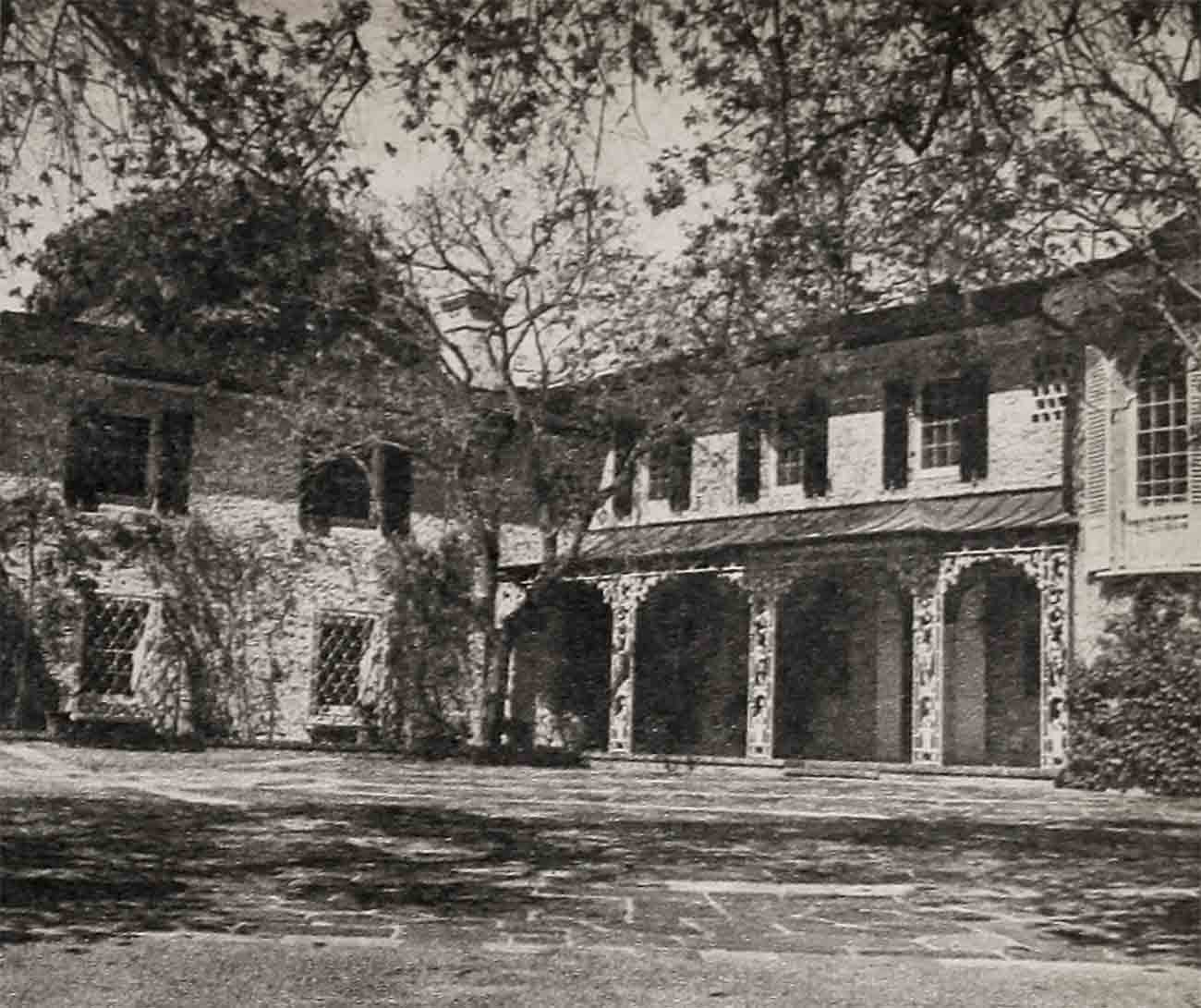
Others close to Bing and Dixie had other reasons. One close friend said—and it could have been true—that in all the years they had been married Bing had never given his wife a present. Oh, as he had grown richer with the years she could buy just about any she wanted, but they say Bing never brought her anything and gave it to her as a token of his love and appreciation. There were those who said that Dixie, alone most of the time and with many idle hours on her hands, had taken to drinking too heavily, and that Bing resented it so much he didn’t want to go home. This is pretty difficult to believe, because Dixie has had almost a full time job looking after her boys, and a careful look at them will deny any intimation that they were neglected in the slightest.
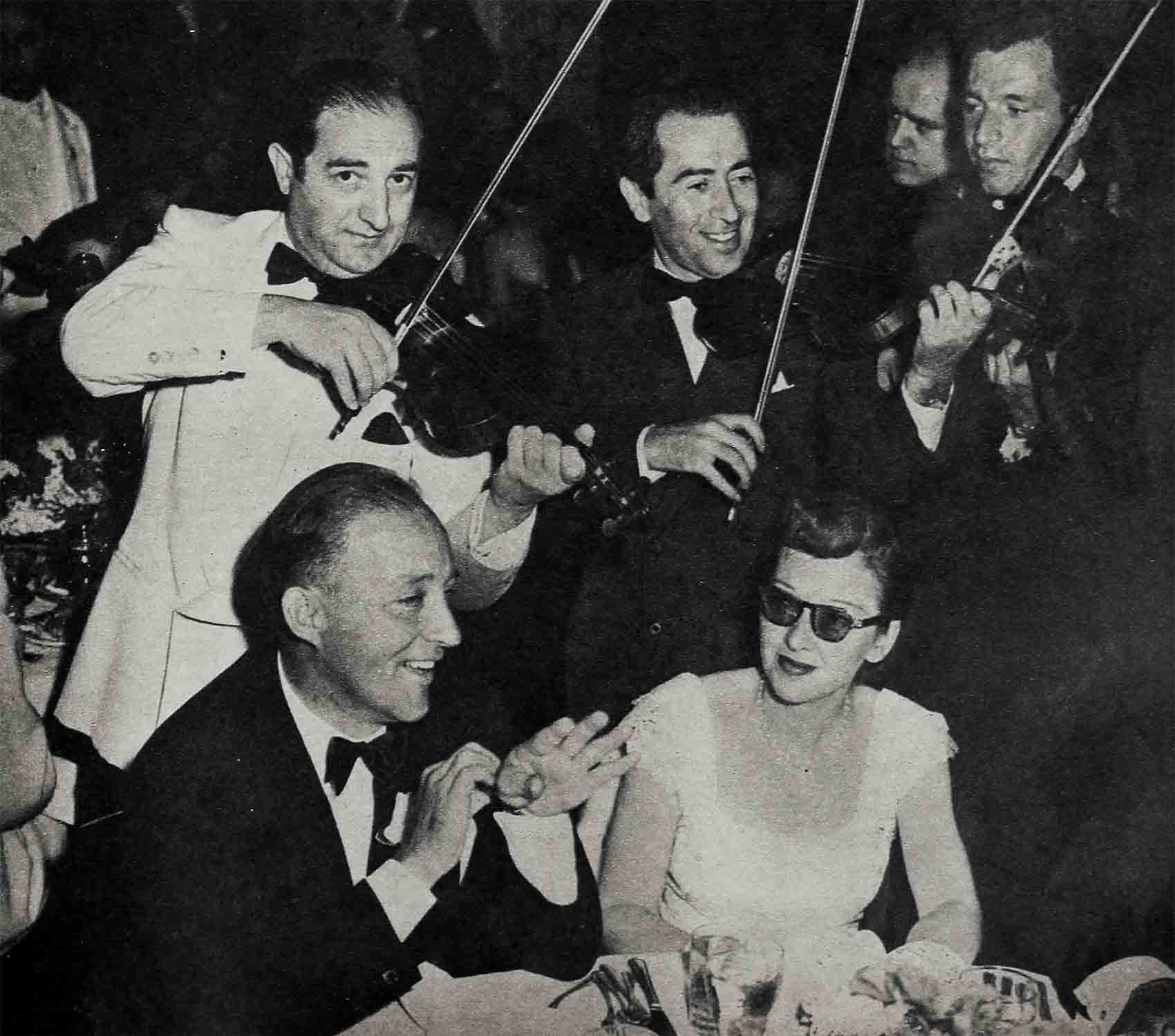
However, there was trouble in the Crosby family. While the papers were cagily looking for proof, never being sure they would dare print if they did find it, several bits of information became available to substantiate the report of a rift.
Larry Crosby, the member of the family charged with the public relations, told the press that a property settlement had been reached, but that he was not sure if a divorce or legal separation would result. And someone from the office of John O’Melveny, Bing’s lawyer, also admitted that all details except as to method of annulment had been taken care of and that Dixie was in Nevada, with access to a court that could make the legal action a fact in a few minutes. The press was on edge because Bing and Dixie own a large ranch in Nevada, which makes them citizens of that state, and she could have secured a divorce in a few minutes any day she decided to walk into a court.
It must be said to the credit of both Bing and Dixie that neither of them spoke a word publicly about their personal problems, although there must have been anger between them at the time.
Like the cause of the alienation, the cause of the reconciliation, too, was never made public. But it is known that for several years the Crosby home was a home in name only. Even so, the resons never changed.
But that brings us back to today. When a legal separation was decided against, Bing and Dixie picked up their lives together where they had left off, and even though it is said it was never as idyllic as it had been, they tried hard to make things right. They are both devout and sincere Catholics and marriage is a sacrament to them, not just a convenience.
Late 1951 and 1952 were trying years for the Crosbys. Bing was ill and required hospitalization and surgery. Dixie, too, fell ill and had to be in the hospital quite a bit of the time. As their trials increased, though, it seemed their love grew, and during most of 1952 their friends seemed terribly glad that they had had troubles, because they were reuniting the young lovers of twenty years ago. And then came Dixie’s latest illness.
Nobody on the inside will, of course, tell just what the nature of the illness was or how serious. But from bits of gossip here and there, stories have been pieced together. Some of them true, no doubt, and some of them fantasy. The most discussed story is that Dixie’s doctors decided she needed an operation to make her well. Surgery was performed and afterwards the doctors said that it hadn’t been successful, and that Dixie would have to rely on God and nature to heal her. That may be right and it may not, but it is the most believed account.
At any rate, at the time of the operation, Bing Crosby went through the second transformation of his life. Although he was busy with his work, he abandoned it and took a room at the hospital where he could be near Dixie all of the time. For long hours while she was is possible danger, he sat by her bed while she slept and held her small hand and comforted her. And when she awoke, there was her man, the crooner from the Cocoanut Grove, seated at her side with a grin and a wry joke to cheer her.
Dixie Crosby always was a strong woman. She came out of the first severe suffering of her illness with a smile and the will to keep things going. The summer was here and the boys had to be taken to their summer cottage at Hayden Lake near Spokane, Washington. They had to be taken, because it was something they looked forward to all year. Her illness was not going to change that.
Bing kissed Dixie on the forehead and ambled out of the hospital room to do as he was told. If Mom was sick, the old man would have to carry on with the kids alone. So he piled the youngsters into a car and drove to Washington and the cabin. But they all kept in touch with Dixie by telephone several times a day.
People who have known Bing Crosby intimately for years didn’t know him at all at the time of Dixie’s illness. Always a preoccupied man, he became more and more preoccupied and appeared never to think about anything else but his wife. He had to do a little work, mainly on his radio tapes for the next year and in preparation for another movie to be made this winter, but he never seemed to care much about what he was doing. All he seemed to care about was finishing un so he could get out to the hospital. And whenever a phone rang, a look of expectancy came over his face, as much as to say: “Any news of Dixie?”
Maybe in the final analysis, the marriage between Bing Crosby, the crooner, and Dixie Lee, the actress, will go down as one of the true love matches of the age in which we live. Certainly it was successful in the respect that it bore bright fruit, and that four young men can testify to the worth of the match by their conduct in society. Maybe it was a good marriage, because, at the time it began, the odds were against it, and the parties to the union overcame the obstacles and managed to end up loving one another more than they had at the start. It was certainly a marriage bedeviled by obstacles. It’s tough to be as famous as Bing Crosby and stay with the same woman to the end. And it’s tougher, maybe, to be Dixie Crosby, wife of a man more famous than anyone ever was, and to be in the background for all the days of her life. At any rate, it will be remembered as a beautiful romance that flowered and stood the test of time and strain.
When the man walked down the hospital corridor alone that day a few weeks ago, maybe he thought of these things. The old days when he didn’t care about much; and the girl who said she’d never call him as long as she lived and never did; and the lives they had lived side by side somehow, even though apart a lot; and of the sons and the homes they’d built; and the happiness and occasional sorrow they had given each other.
He was the most famous man in the world, but what did it matter now. There were just two of them now, alone together in a small hospital room. All that mattered was that Dixie was very ill—and the sky would fall if she didn’t get well. Take a look at the casual man. He’s weeping.
THE END
(Bing’s latest Paramount movie is Just For You.)
It is a quote. MODERN SCREEN MAGAZINE NOVEMBER 1952





No Comments